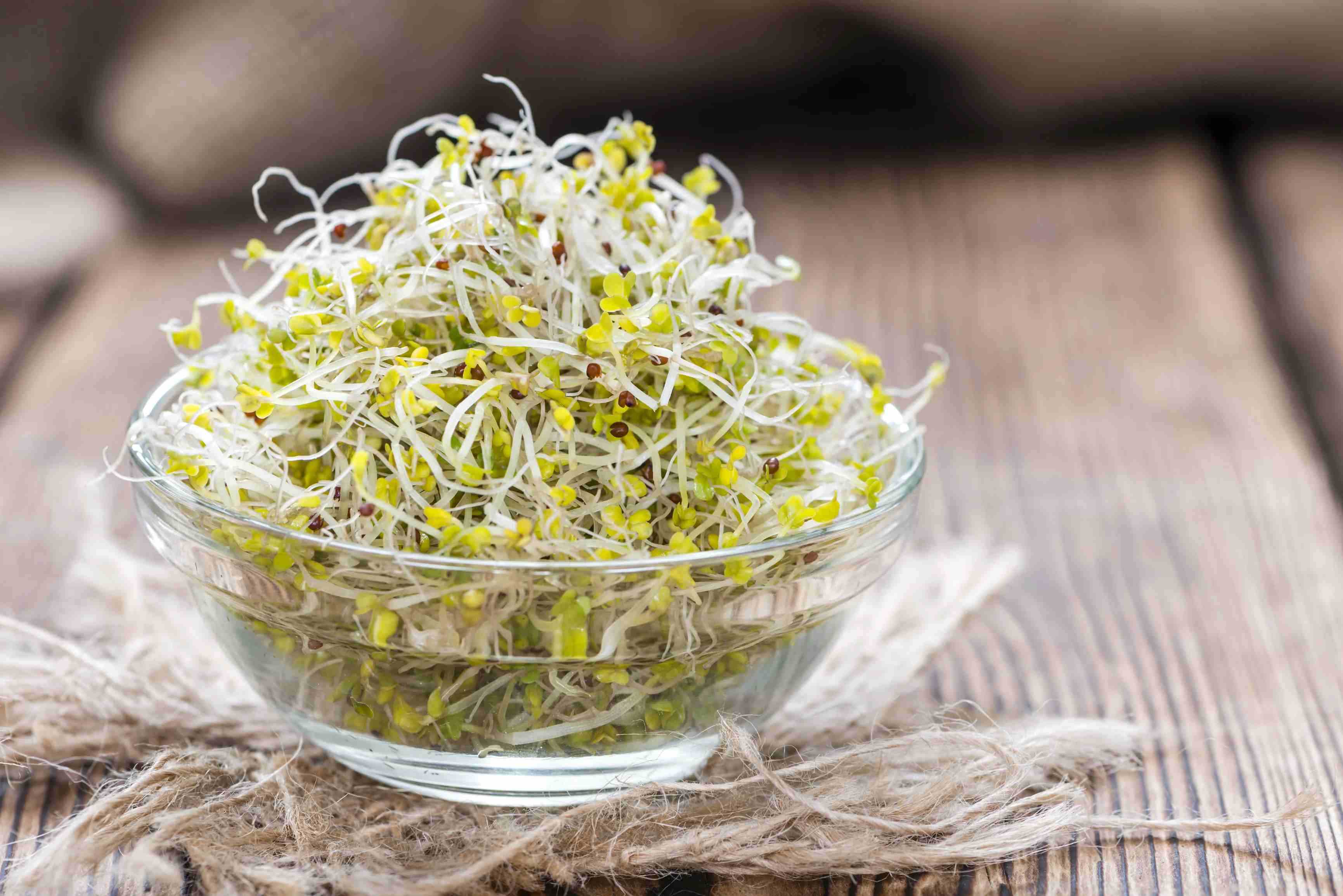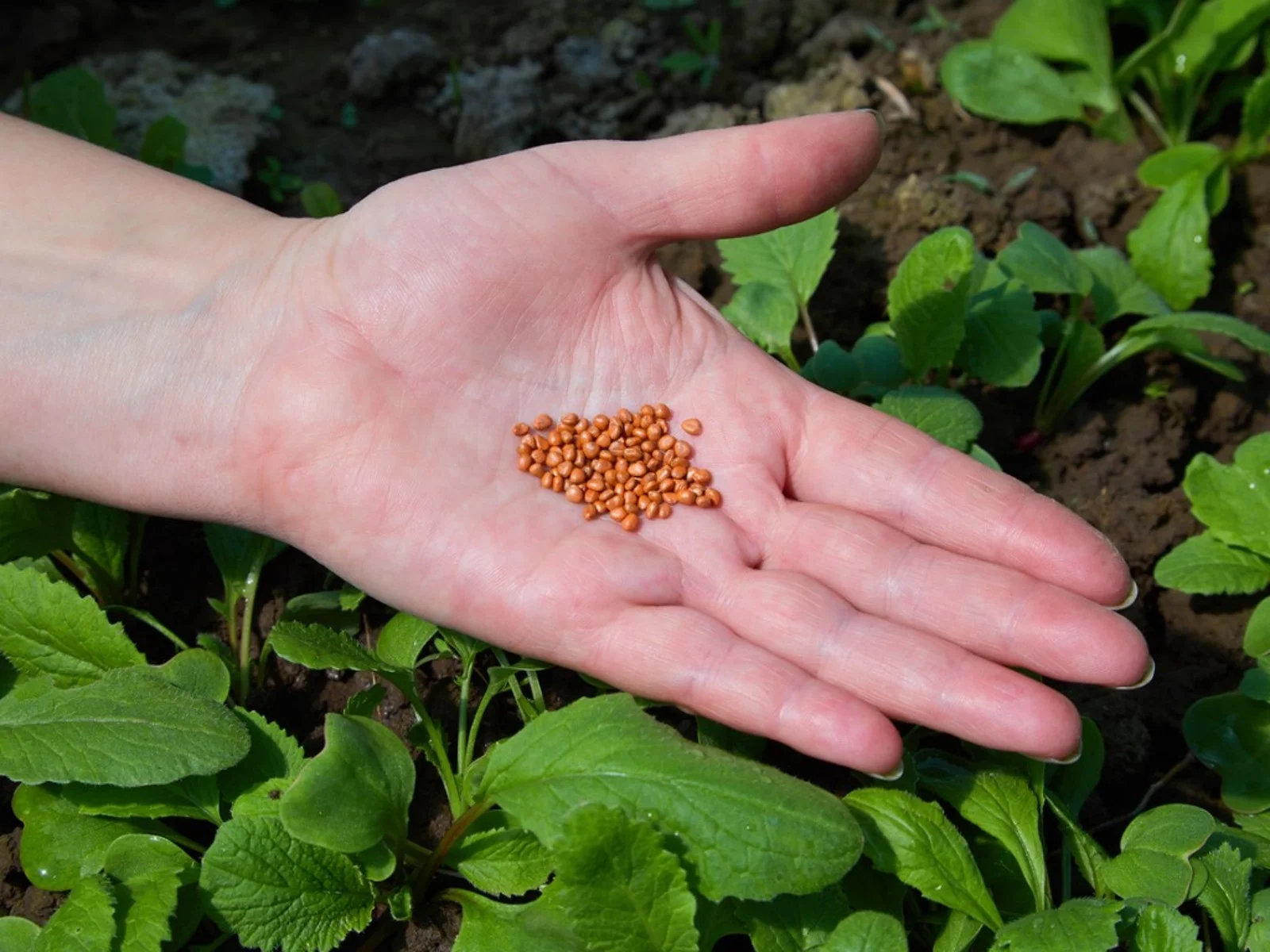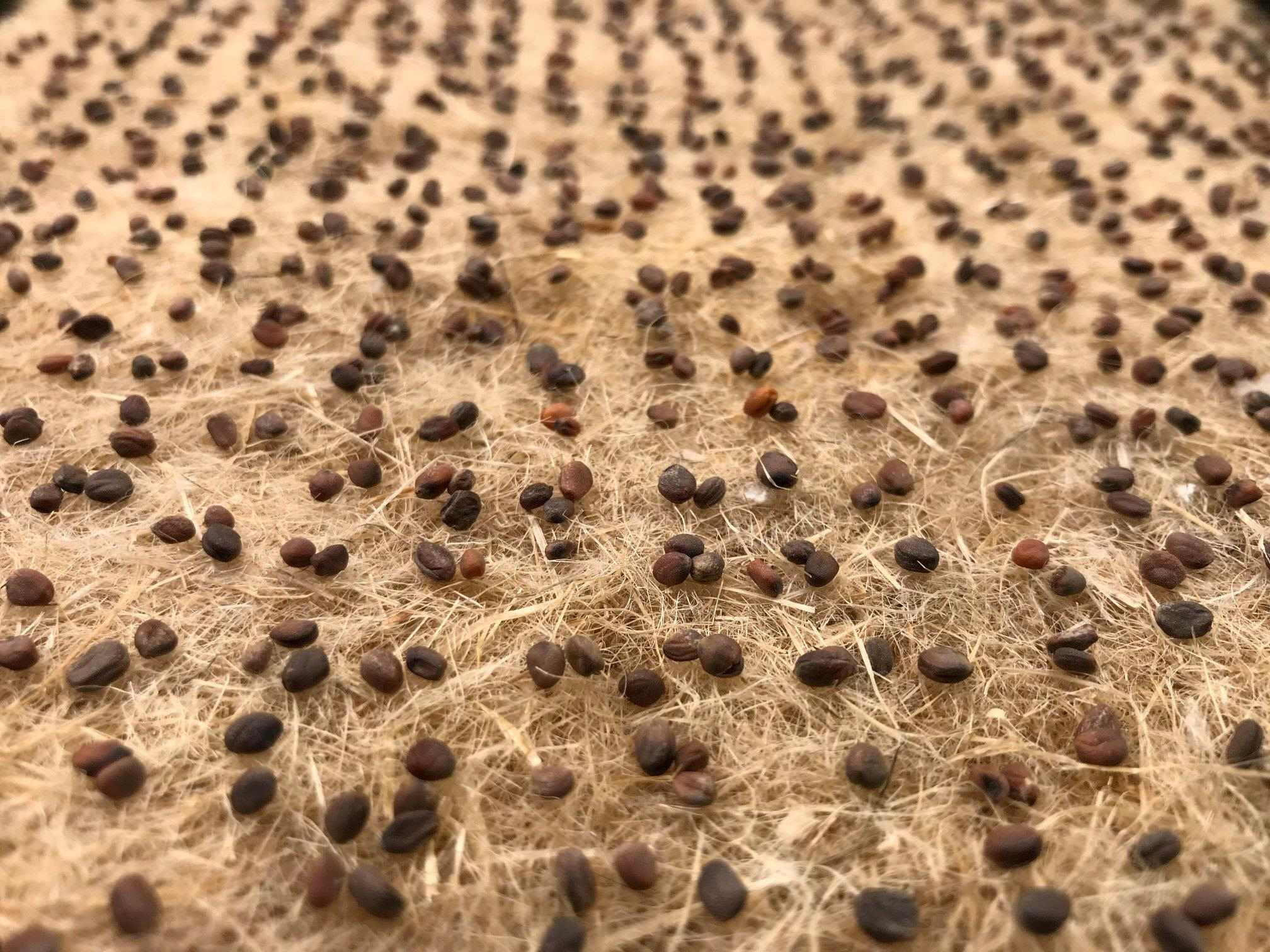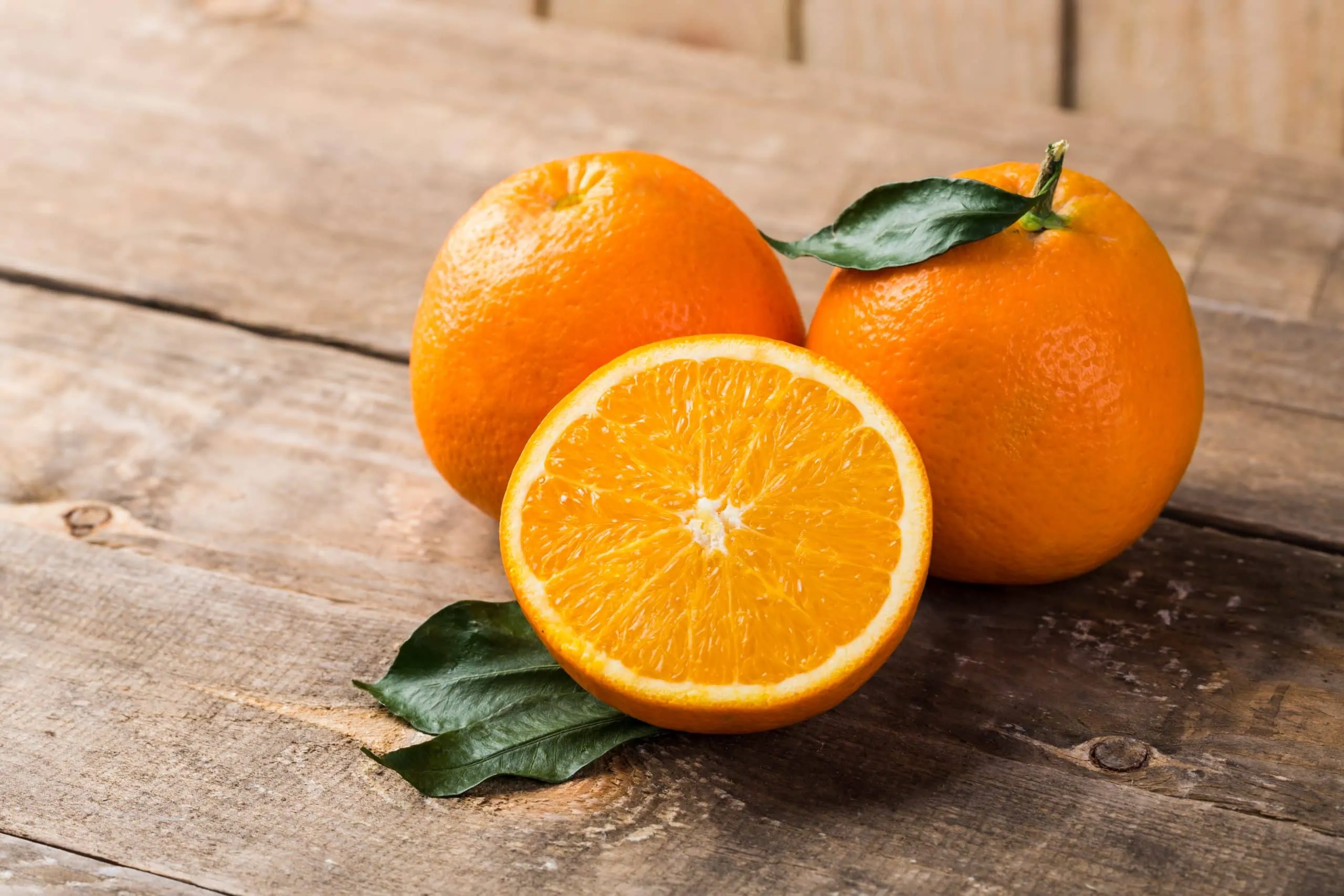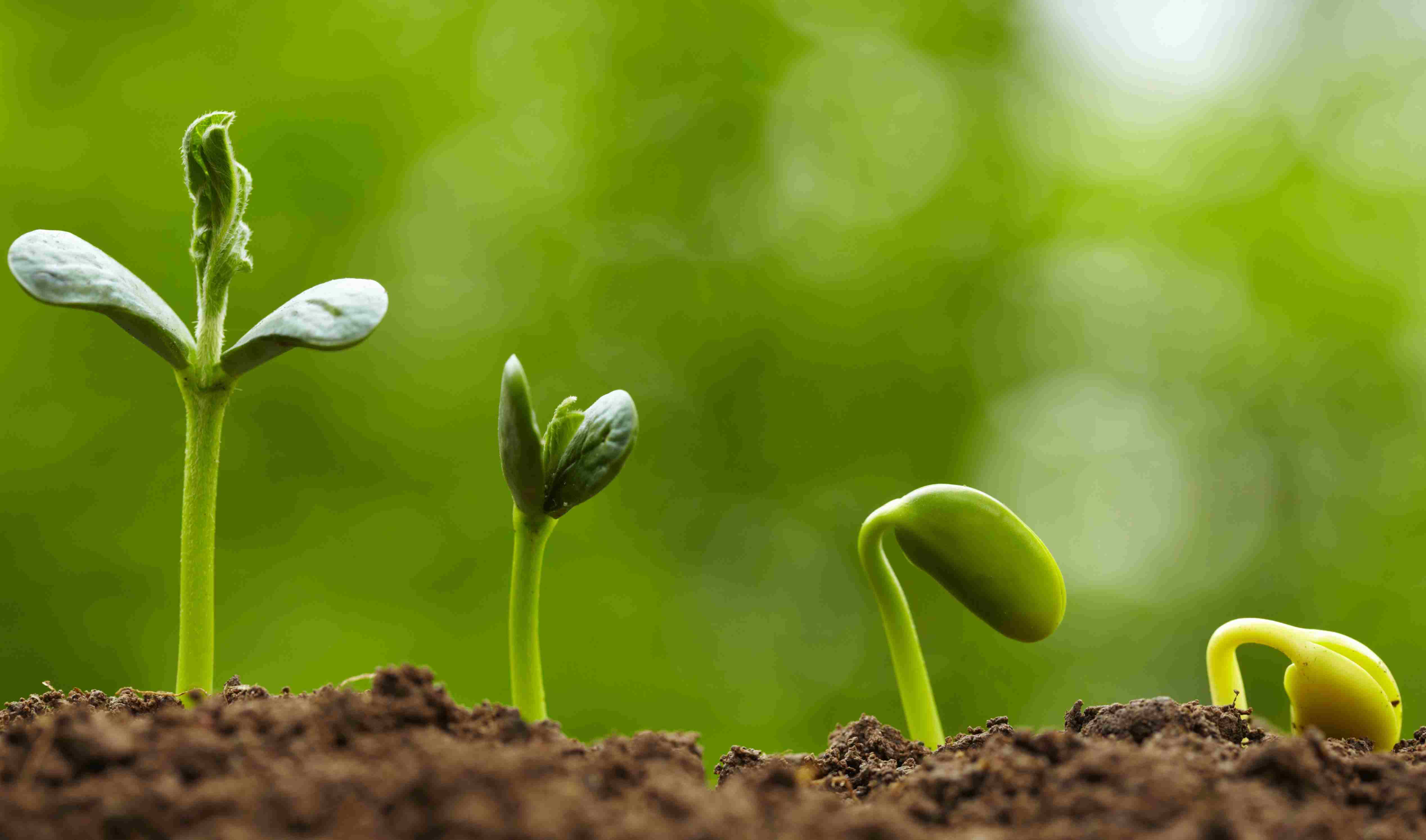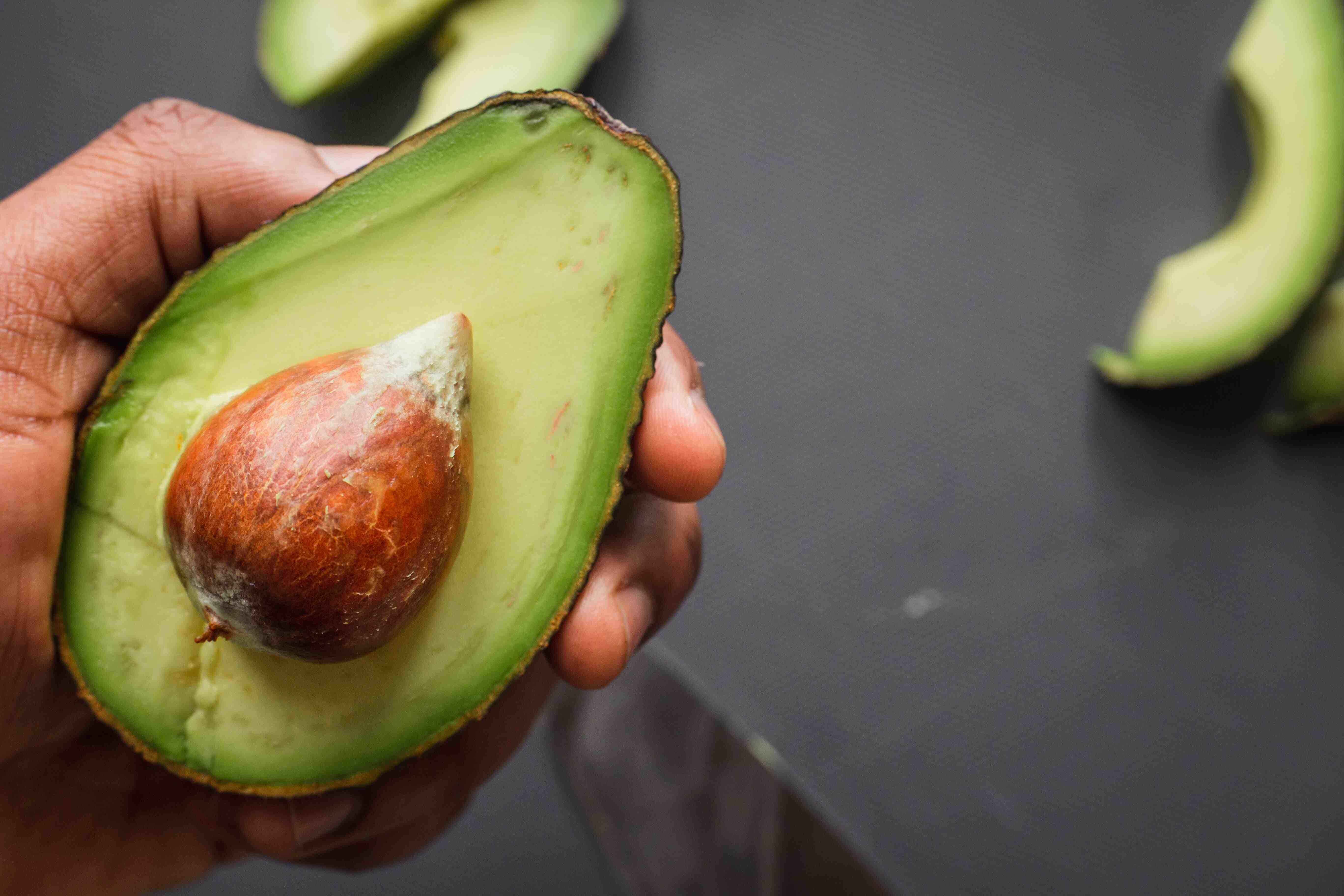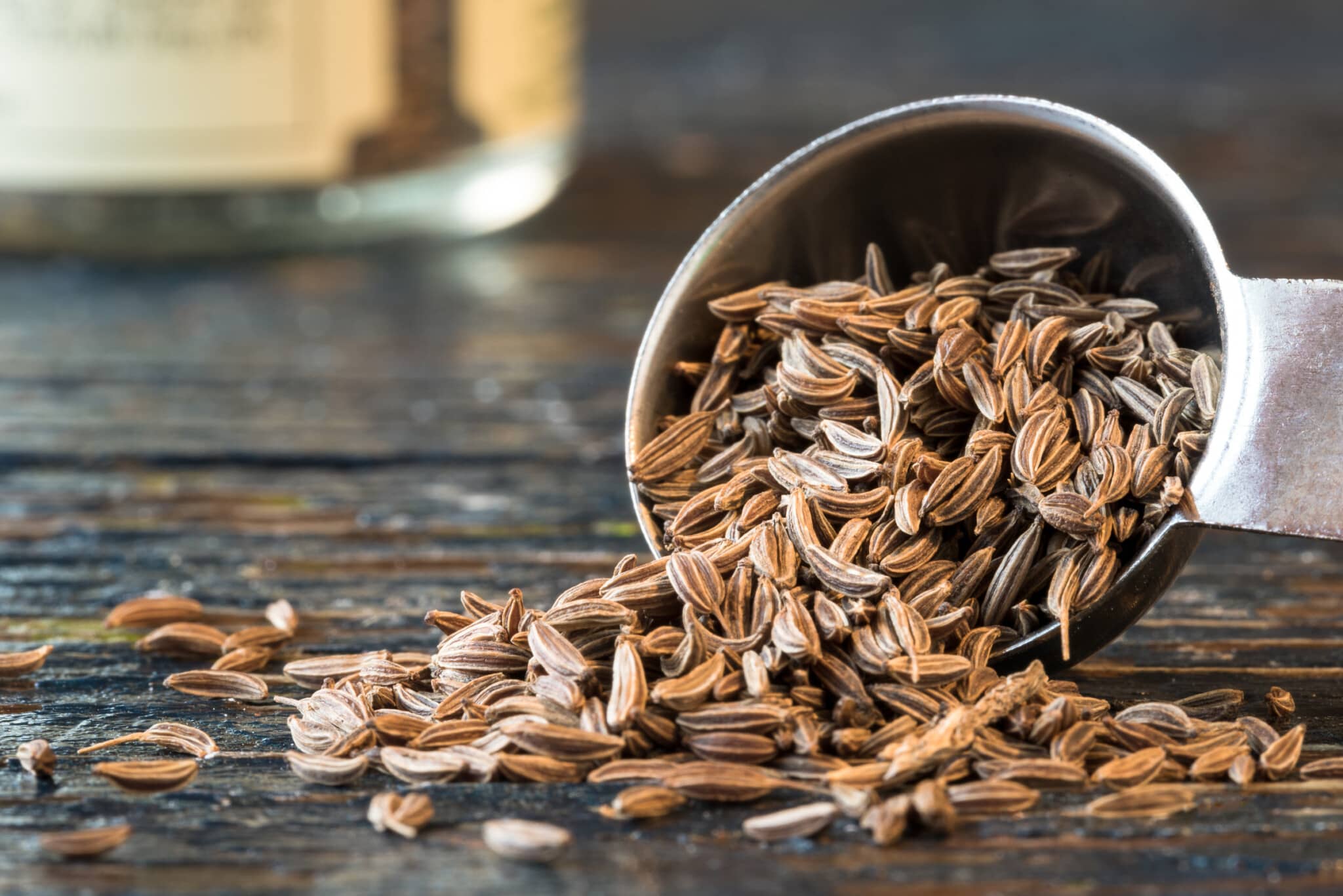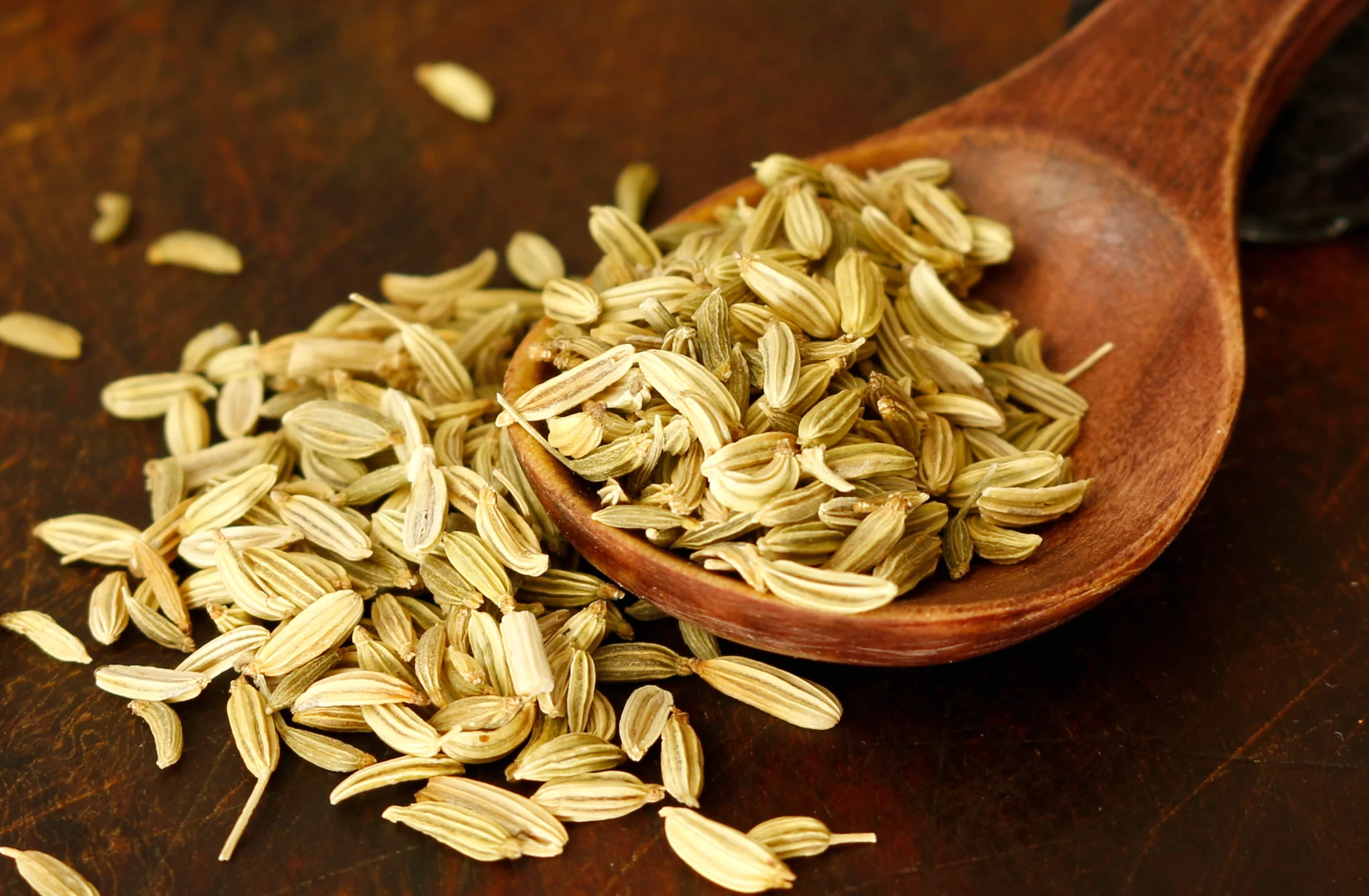Home>Types of Gardening>Edible Gardening>What Are Coriander Seeds
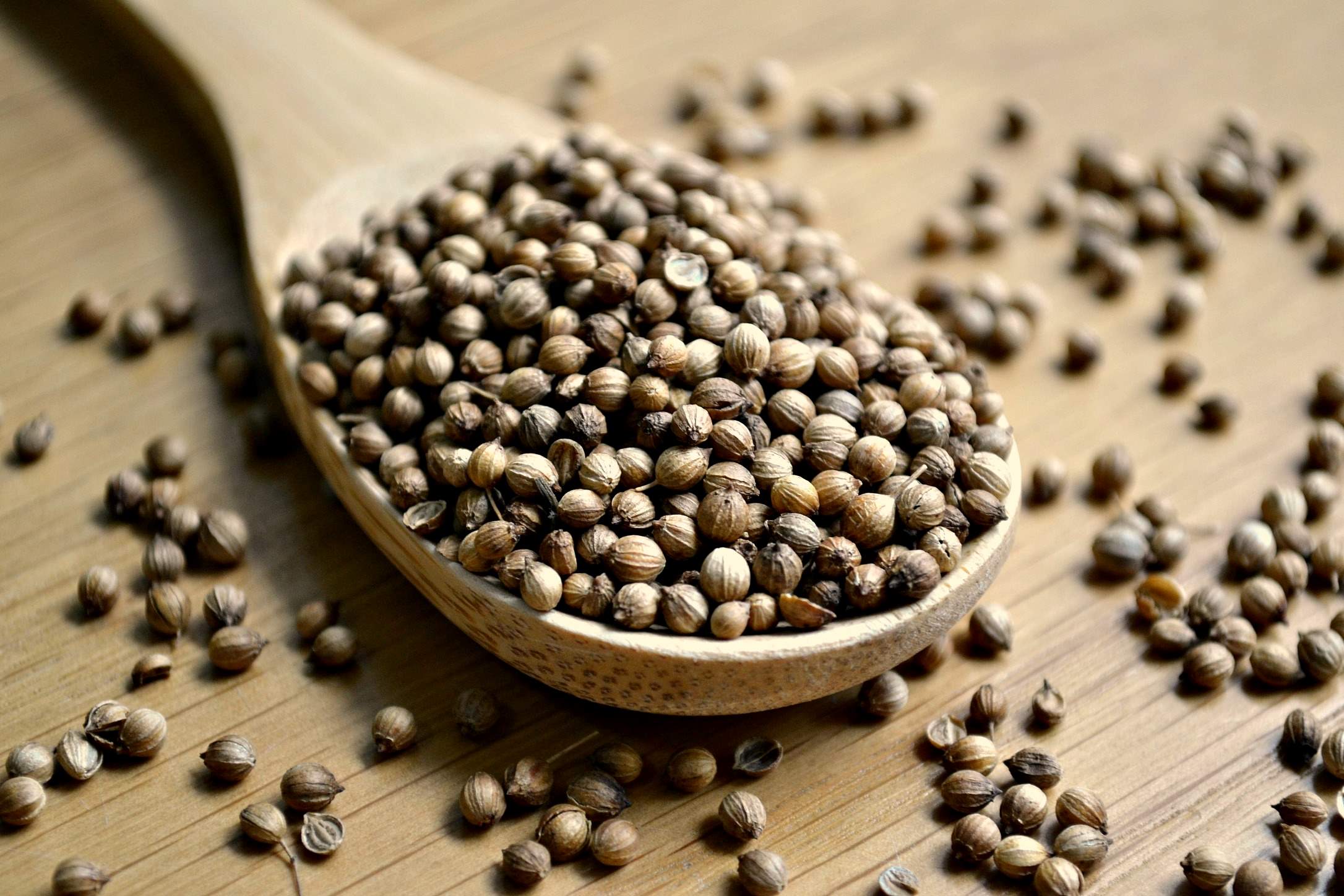

Edible Gardening
What Are Coriander Seeds
Modified: January 22, 2024
Learn about coriander seeds and how to grow them in your own edible garden. Discover the benefits of including coriander seeds in your cooking.
(Many of the links in this article redirect to a specific reviewed product. Your purchase of these products through affiliate links helps to generate commission for Chicagolandgardening.com, at no extra cost. Learn more)
Table of Contents
Introduction
Welcome to the world of edible gardening! Are you looking to add some fresh flavors to your dishes while also embracing the joys of growing your own food? If so, then edible gardening is the perfect hobby for you. And when it comes to the world of edible plants, coriander is a standout. Not only is it incredibly versatile in the kitchen, but it also offers a myriad of health benefits.
Coriander seeds, derived from the coriander plant, are a staple ingredient in many cuisines around the globe. They are known for their distinct flavor and aroma, which adds a unique touch to various dishes. But coriander seeds are not just a culinary delight; they have been used for centuries in traditional medicine for their medicinal properties.
In this article, we will explore the origins and cultural significance of coriander seeds, as well as their culinary uses and incredible health benefits. Whether you are an experienced edible gardener or just starting out, this article will equip you with the knowledge you need to grow and utilize coriander seeds to enhance your culinary adventures.
So, grab your gardening tools and get ready to discover the wonders of coriander seeds!
Origins of Coriander Seeds
Coriander seeds have a rich history dating back thousands of years. Native to regions of Southern Europe, North Africa, and Western Asia, they have been cultivated for culinary and medicinal purposes since ancient times.
The use of coriander seeds can be traced back to ancient civilizations such as the Egyptians, Greeks, and Romans, who recognized their value both in the kitchen and for their potential health benefits. Coriander was highly prized and widely used in these societies for its aromatic properties and versatile flavor.
Over the centuries, coriander seeds made their way to various parts of the world through trade routes and explorations. From China to India, the Middle East to Europe, different cultures adopted coriander seeds into their own culinary traditions. Today, coriander seeds are a key ingredient in cuisines such as Indian, Thai, Mexican, and Middle Eastern.
The coriander plant itself, from which the seeds are harvested, is an annual herb that belongs to the Apiaceae family. It grows to a height of about 1 to 3 feet (30 to 90 cm) and produces delicate, fern-like leaves. The plant also produces small, round, light-brown seeds that are the star of the show.
Coriander seeds are known for their distinctive flavor, often described as a combination of citrus, earthiness, and warmth. They have a slightly sweet taste with hints of lemon and a mild, peppery undertone. This flavor profile adds depth and complexity to a wide range of dishes, from curries and soups to roasted vegetables and baked goods.
So, from the ancient civilizations to our modern kitchens, coriander seeds have continued to captivate taste buds and enhance the flavors of dishes all over the world. Their origins rooted in ancient history make them a fascinating ingredient to explore and incorporate into our edible gardens and culinary creations.
Culinary Uses of Coriander Seeds
When it comes to culinary uses, coriander seeds are truly versatile and can elevate your dishes with their distinct flavor and aroma. They are a staple ingredient in many cuisines and can be used in various forms – whole, crushed, or ground into a powder.
One of the most common uses of coriander seeds is in spice blends and marinades. They are a vital component of curry powders, adding depth and warmth to dishes. Coriander seeds can also be toasted and ground to create your own spice blends, allowing you to customize the flavors to suit your taste preferences.
Whole coriander seeds can be added to pickling brines, giving a tangy and slightly sweet note to preserved vegetables. They can also be used in the preparation of infused oils and vinegars, infusing them with their distinct flavor profile.
Crushed coriander seeds are a popular addition to spice rubs for meat and fish, bringing out their natural flavors. They can be used to season roasted vegetables, adding a pleasant and aromatic twist to the dish.
Additionally, coriander seeds are widely used in baking. Ground coriander is a common ingredient in bread, cookies, cakes, and pastries, adding a unique and delightful flavor to the finished product.
Coriander seeds are also an essential component of many traditional dishes. In Indian cuisine, they are frequently used in dal, chutneys, and curries, providing a distinctive flavor to these dishes. In Mexican cuisine, toasted coriander seeds are a key ingredient in salsa verde and mole sauces.
Furthermore, coriander seeds can be brewed into a fragrant herbal tea. Simply crush a tablespoon of seeds and steep them in hot water for a few minutes. This tea is known for its calming properties and can be enjoyed on its own or with a touch of honey and lemon.
Incorporating coriander seeds into your culinary repertoire allows you to experiment with flavors and create unique and delicious dishes. Whether you’re a fan of bold and spicy flavors or prefer subtle hints of citrus, coriander seeds have something to offer for every palate.
Medicinal Benefits of Coriander Seeds
Coriander seeds are not only prized for their culinary uses but also for their numerous medicinal benefits. For centuries, they have been used in traditional medicine systems around the world for their healing properties.
One of the notable health benefits of coriander seeds is their ability to aid digestion. They contain essential oils that promote the release of digestive enzymes, helping to soothe indigestion, bloating, and discomfort. Coriander seeds can also help alleviate symptoms of irritable bowel syndrome (IBS) and promote healthy gut function.
Coriander seeds possess anti-inflammatory properties that can help reduce inflammation in the body. This makes them beneficial in managing conditions such as arthritis, joint pain, and inflammation-related skin conditions.
In addition, coriander seeds have antioxidant properties, thanks to their rich content of phytonutrients. These antioxidants help neutralize harmful free radicals in the body, protecting cells from oxidative damage and reducing the risk of chronic diseases, such as heart disease and certain types of cancer.
Coriander seeds are known for their potential cholesterol-lowering effects. The compounds present in the seeds help inhibit the absorption of cholesterol in the intestines, leading to lower levels of LDL (bad) cholesterol. Regular consumption of coriander seeds may contribute to better heart health and reduce the risk of cardiovascular diseases.
Moreover, coriander seeds have been used in traditional medicine to support diabetes management. They have been found to help regulate blood sugar levels by stimulating the secretion of insulin and improving glucose utilization in the body. However, it is essential to consult with a healthcare professional before using coriander seeds as a treatment for diabetes.
Coriander seeds are also believed to have antimicrobial properties, which can help fight against various bacterial and fungal infections. They have been used in natural remedies for treating conditions like urinary tract infections, skin infections, and oral health issues.
It’s important to note that while coriander seeds offer potential health benefits, they should not be used as a substitute for medical advice or treatment. If you have any specific health concerns, it is always best to consult with a healthcare professional.
With their range of health-promoting properties, coriander seeds are more than just a flavorful addition to your dishes. They can be a valuable ally in promoting overall well-being and maintaining a healthy lifestyle.
Nutritional Profile of Coriander Seeds
Coriander seeds are not only packed with flavor but also offer a range of essential nutrients. These tiny seeds are a rich source of vitamins, minerals, and antioxidants that contribute to their health-promoting properties.
One tablespoon (6 grams) of coriander seeds provides approximately:
- Calories: 15
- Protein: 1 gram
- Fat: 0.6 grams
- Carbohydrates: 2.8 grams
- Fiber: 1.5 grams
- Vitamin C: 1% of the Recommended Daily Intake (RDI)
- Vitamin K: 5% of the RDI
- Iron: 4% of the RDI
- Manganese: 3% of the RDI
Coriander seeds are also a good source of dietary fiber, promoting healthy digestion and aiding in weight management. The fiber content helps regulate blood sugar levels and may reduce the risk of developing type 2 diabetes.
Additionally, coriander seeds are a rich source of antioxidants, including flavonoids, phenolic compounds, and vitamin C. These antioxidants help protect the body against oxidative stress, reducing the risk of chronic diseases and promoting overall health and well-being.
Coriander seeds are also known for their essential oil content, which is responsible for their distinct aroma and flavor. These essential oils, such as linalool and geranyl acetate, contribute to the seeds’ health benefits, including their anti-inflammatory and antimicrobial properties.
It’s important to note that while coriander seeds offer valuable nutrients, they are typically used in small quantities in culinary preparations. However, even in these small amounts, they can provide a boost of flavor and a touch of nutritional goodness.
So, whether you’re using coriander seeds as a seasoning in cooking or enjoying them in herbal teas, you can feel good about adding this ingredient to your dishes and reaping the nutritional benefits they bring.
How to Store Coriander Seeds
Proper storage is crucial in preserving the flavor and potency of coriander seeds. By following a few simple steps, you can ensure that your coriander seeds stay fresh and flavorful for an extended period.
Here are some tips on how to store coriander seeds:
- Choose airtight containers: Transfer the coriander seeds into airtight containers, such as glass jars or sealable bags. This helps prevent moisture and air from entering and causing deterioration.
- Store in a cool, dry place: Coriander seeds are best stored in a cool and dry location, away from direct sunlight and heat sources. A pantry or cabinet is an ideal spot.
- Avoid grinding until ready to use: Grinding coriander seeds exposes more surface area to oxidation, leading to faster loss of flavor and aroma. It is best to grind the seeds right before using to maximize freshness.
- Label and date the containers: It’s helpful to label the containers with the date of purchase or storage to keep track of freshness. This way, you can use the older seeds first and maintain a rotation to ensure maximum flavor.
- Avoid storing near strong odors: Coriander seeds have a delicate flavor that can absorb strong odors from nearby spices. Keep them away from pungent spices like cumin or garlic to maintain their unique taste.
By following these storage methods, your coriander seeds can retain their flavor and aroma for up to a year. However, it is worth noting that as time passes, the seeds may gradually lose some of their potency, so it’s best to use them within a reasonable timeframe to enjoy their full flavor profile.
Remember, when cooking with coriander seeds, lightly toasting them before grinding or using them whole can enhance their fragrance and release their essential oils, taking your culinary creations to the next level.
So, with proper storage techniques, you can ensure that your coriander seeds remain fresh and flavorful, ready to impart their unique taste to your dishes whenever you call upon them.
Tips for Using Coriander Seeds in Cooking
Coriander seeds are a versatile and flavorful addition to a wide range of dishes. Here are some tips to help you make the most of this incredible spice in your cooking:
- Toast and grind for enhanced flavor: Toasting coriander seeds in a dry pan on low heat for a few minutes can intensify their aroma and flavor. After toasting, grind the seeds in a mortar and pestle or a spice grinder to release their essential oils.
- Aromatic seasoning for meats and vegetables: Crushed or ground coriander seeds make for an excellent seasoning for meats, poultry, and vegetables. Rub them onto your choice of protein before grilling or roasting to add a fragrant punch.
- Infuse oils and vinegars: Add whole coriander seeds to olive oil or vinegar and let them infuse for a few days. The resulting flavored oils and vinegars can be drizzled over salads or used as a marinade.
- Experiment with spice blends: Coriander seeds are a key ingredient in many spice blends, such as garam masala and curry powder. You can create your own custom blends by combining coriander with other spices like cumin, turmeric, and cardamom.
- Add to soups and stews: Whole coriander seeds can be added to soups, stews, and broths to infuse them with their unique flavor. They work particularly well in dishes with a tomato or vegetable base.
- Enhance baked goods: Ground coriander seeds can add a delightful twist to baked goods. Incorporate them into bread, muffins, cookies, or cakes to give a subtle hint of citrus and warmth.
- Include in pickling brines: The tangy and slightly sweet flavor of coriander seeds makes them a fantastic addition to pickling brines for vegetables. They can bring a unique twist to pickled cucumbers, carrots, or onions.
- Pair with other spices: Coriander seeds complement a variety of other spices. Combine them with cumin, fennel, cinnamon, or ginger to create complex and aromatic flavor profiles.
Remember, the key is to experiment with coriander seeds and find ways to incorporate them into your favorite recipes. Whether you use them whole, crushed, or ground, coriander seeds can elevate the taste and aroma of your dishes, transforming ordinary meals into extraordinary culinary experiences.
So, don’t hesitate to get creative in the kitchen and let the flavors of coriander seeds enhance your cooking adventure!
Potential Side Effects and Precautions
While coriander seeds are generally safe for consumption, there are a few potential side effects and precautions to be aware of:
Allergies: Some individuals may have allergies or sensitivities to coriander seeds. If you experience any allergic reactions such as itching, swelling, or difficulty breathing after consuming coriander seeds, seek medical attention immediately.
Drug Interactions: Coriander seeds may interact with certain medications. If you are taking medications such as blood thinners, diabetic medications, or anticoagulants, it is advisable to consult with your healthcare provider before incorporating coriander seeds into your diet to avoid any potential interactions.
Pregnancy and Breastfeeding: Pregnant or breastfeeding women should exercise caution when consuming coriander seeds. While moderate consumption is generally safe, it is recommended to consult with a healthcare professional to ensure it does not pose any risks.
Photosensitivity: Some individuals may experience photosensitivity when consuming coriander seeds or using coriander-based products topically. This can make the skin more sensitive to sunlight, leading to increased risk of sunburn. If you notice any skin reactions, it is best to avoid direct exposure to sunlight and use sunscreen while using coriander-based products.
Digestive Issues: Coriander seeds are known for their digestive benefits; however, in some cases, they may cause digestive discomfort in susceptible individuals. If you experience digestive upset, such as diarrhea, abdominal pain, or gas after consuming coriander seeds, it is advisable to reduce or avoid their consumption.
It’s important to remember that individual reactions and sensitivities can vary. If you have any concerns or pre-existing medical conditions, it is always recommended to consult with a healthcare professional or a registered dietician before incorporating coriander seeds into your diet.
By approaching coriander seed consumption with caution and being mindful of your own body’s responses, you can enjoy the many culinary and potential health benefits that coriander seeds have to offer.
Conclusion
Coriander seeds are more than just a flavorful ingredient; they are a window into a rich culinary and medicinal heritage. With their versatility, unique flavor profile, and potential health benefits, coriander seeds have earned their place in kitchens and gardens around the world.
Originating from ancient civilizations and traveling through time, coriander seeds have captured the attention of taste buds across cultures. From Indian curries to Mexican salsas, the uses for coriander seeds in cooking are endless. They can enhance the flavor of meats, vegetables, baked goods, and even infuse oils and vinegars.
Not only do coriander seeds add a delightful taste to dishes, but they also offer potential health benefits. From aiding digestion and reducing inflammation to supporting heart health and providing antioxidants, these tiny seeds pack a powerful punch.
When it comes to storing and using coriander seeds, it’s important to follow proper guidelines. Storing them in airtight containers, keeping them away from strong odors, and grinding them just before use can help maintain their freshness and flavor.
However, it’s essential to be aware of potential side effects and precautions. While coriander seeds are generally safe for consumption, allergies, drug interactions, and photosensitivity can occur. If you have any concerns or underlying medical conditions, it’s always best to consult with a healthcare professional.
In conclusion, coriander seeds are a true gem in the world of edible gardening and culinary adventures. Their origins steeped in history, their wide range of culinary uses, their potential health benefits, and their ability to add a unique touch to dishes make them an invaluable ingredient.
So, whether you’re an avid edible gardener or a passionate home cook, don’t miss out on the wonders of coriander seeds. Embrace their flavors, explore their potential, and let them tantalize your taste buds while providing a touch of tradition and wellness to your everyday meals.
